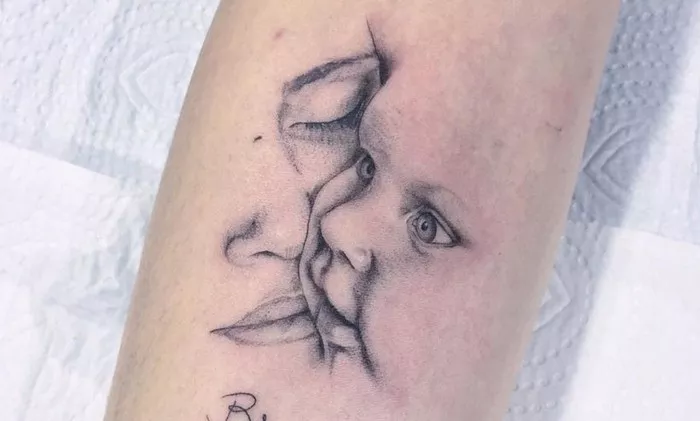Tattoos have evolved from ancient cultural practices to modern forms of self-expression, with millions of people worldwide choosing to adorn their bodies with ink. While the artistry and symbolism behind tattoos are widely celebrated, the psychological aspects of this form of body modification have become an intriguing subject for psychiatrists. In this article, we will delve into the various perspectives of mental health professionals on tattoos, exploring the impact on individuals’ psyche, self-esteem, and even therapeutic potential.
The Tattoo Phenomenon: A Brief Overview
The Historical Context
Tattooing has a rich history, deeply embedded in cultural rituals, rites of passage, and symbolism. From tribal markings to religious symbols, tattoos have served as a means of expression and identity across diverse societies. In the modern era, tattoos have transcended cultural boundaries, becoming a global phenomenon embraced by people from all walks of life.
Changing Perceptions
Historically associated with rebellion and counterculture, tattoos have undergone a significant shift in societal perception. Once considered taboo, they are now widely accepted and appreciated as forms of personal expression. This transformation in attitude has prompted psychiatrists to investigate the underlying psychological motivations and consequences of tattooing.
The Psychological Motivations Behind Tattoos
Self-Expression and Identity
Psychiatrists acknowledge that tattoos often serve as a powerful tool for self-expression. Individuals use tattoos to convey personal narratives, beliefs, and affiliations. The process of choosing, designing, and getting a tattoo can be a cathartic experience, allowing people to externalize their internal worlds.
Empowerment and Autonomy
The act of getting a tattoo is a deliberate choice, reflecting an individual’s autonomy over their body. Psychiatrists view this as a source of empowerment, as individuals exercise control over a permanent and visible aspect of their appearance. This autonomy can contribute positively to self-esteem and self-efficacy.
Coping Mechanisms
For some individuals, tattoos function as coping mechanisms in the face of trauma, loss, or mental health challenges. Psychiatric professionals recognize the therapeutic potential of tattoos, as they may symbolize resilience, recovery, or personal growth. In therapeutic settings, individuals with a history of trauma may use tattoos as a tangible reminder of their journey towards healing.
Psychiatric Perspectives on Tattoo Regret
While many individuals embrace their tattoos with pride, some experience regret over their inked decisions. Psychiatrists approach tattoo regret as a complex psychological phenomenon.
Identity Evolution
As individuals grow and evolve, their values, beliefs, and tastes may undergo significant changes. A tattoo that once held deep personal significance may lose relevance over time, leading to feelings of regret. Psychiatric professionals consider this evolution of identity as a natural part of the human experience.
Social Stigma and Discrimination
In certain cases, tattoo regret may stem from societal attitudes and discrimination. Individuals with visible tattoos may face challenges in professional and social spheres, contributing to regret. Psychiatrists advocate for a more inclusive society that recognizes the diversity of personal expression, minimizing the negative impact of social stigma on mental well-being.
Tattoos and Body Image: A Psychological Exploration
Body Modification and Self-Perception
Psychiatrists recognize the interconnectedness between body modification, including tattoos, and self-perception. The choice to modify one’s body through tattoos can significantly influence body image and self-esteem. Understanding these dynamics is crucial in addressing the psychological implications of tattooing.
Tattooing and Self-Esteem
Research suggests a complex relationship between tattoos and self-esteem. While some individuals report enhanced self-esteem following the acquisition of tattoos, others may experience fluctuations in confidence based on factors such as the visibility and societal acceptance of their ink. Psychiatric professionals explore these dynamics to provide comprehensive support to individuals navigating their self-esteem in the context of tattoos.
Tattoos in Therapeutic Settings: Healing Art on the Body
Art as Therapy
The integration of tattoos into therapeutic practices is an emerging area of interest for psychiatrists. Art therapy, including tattoo artistry, is recognized as a powerful tool for individuals grappling with mental health challenges. The process of designing and receiving a therapeutic tattoo can foster self-reflection, emotional expression, and healing.
Symbolism in Therapeutic Tattoos
Therapeutic tattoos often carry deep personal symbolism related to the individual’s journey, struggles, and triumphs. Psychiatrists collaborate with skilled tattoo artists to facilitate this therapeutic process, ensuring that the symbolism aligns with the client’s therapeutic goals. The permanence of tattoos adds an additional layer of significance to the therapeutic experience.
Tattoos and Mental Health Disorders
Tattooing and Self-Harm
For some individuals, tattoos may serve as an alternative or complementary form of self-expression to self-harm. Psychiatrists working with clients engaging in self-harming behaviors explore the motivations behind choosing tattoos as a coping mechanism.
Tattooing and Body Dysmorphic Disorders
Psychiatrists also consider the relationship between tattooing and body dysmorphic disorders (BDD). While tattoos are generally a form of body modification, individuals with BDD may perceive their tattoos in a distorted manner, leading to distress and dissatisfaction. This intersection between tattoos and mental health disorders requires a nuanced approach in therapeutic settings.
Conclusion
Tattoos, once relegated to the fringes of societal acceptance, have become mainstream expressions of individuality and artistry. Psychiatrists, recognizing the intricate interplay between tattoos and mental health, continue to explore the psychological dimensions of this age-old practice. From self-expression and empowerment to therapeutic interventions, the psychological landscape of tattoos is as diverse and profound as the stories etched onto the skin.
As societal perceptions continue to evolve, psychiatrists remain at the forefront of understanding and supporting individuals on their tattoo journeys. Whether analyzing the motivations behind ink choices, addressing tattoo regret, or incorporating tattoos into therapeutic practices, mental health professionals play a vital role in unraveling the intricate tapestry of the inked psyche.

